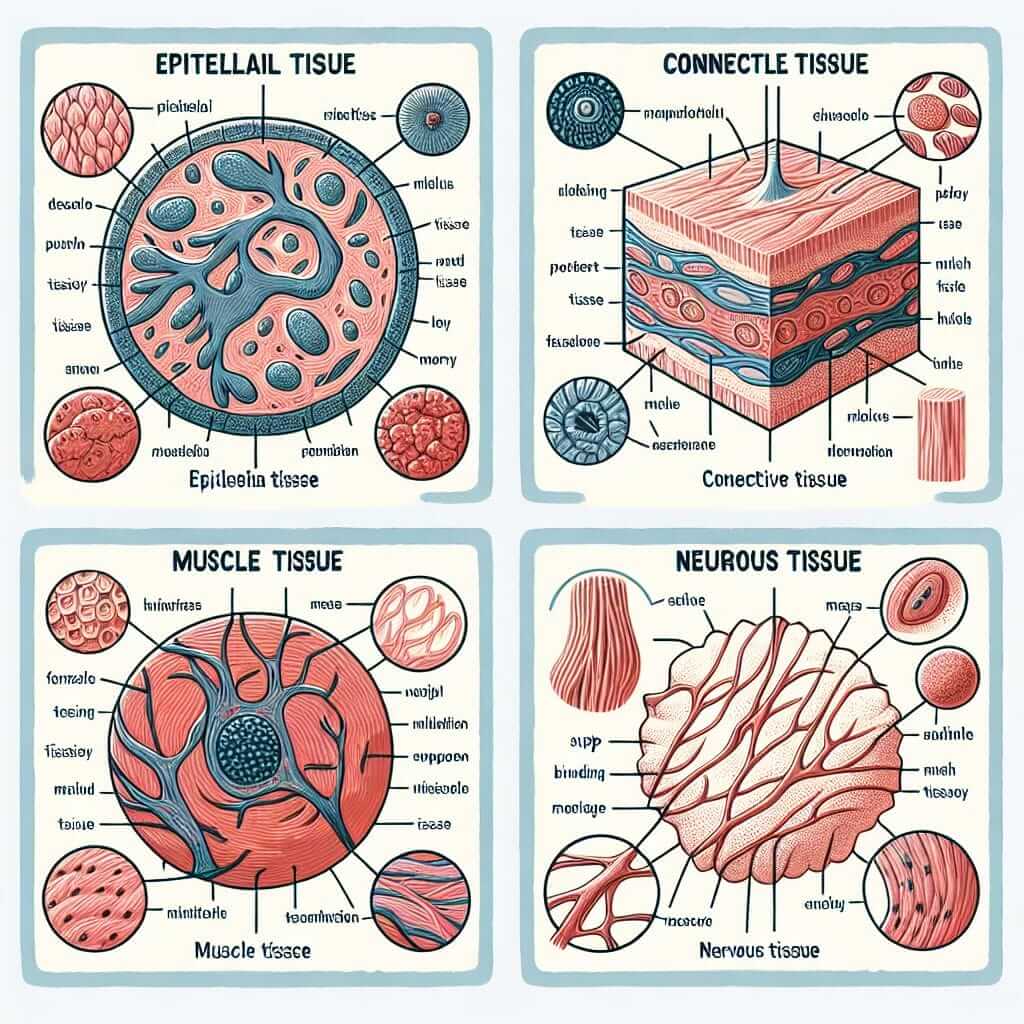When preparing for the IELTS exam, particularly within the realm of health and medicine-related topics, encountering the word “tissue” is almost inevitable. Understanding its various contexts and related vocabulary is crucial for achieving a high score. This comprehensive guide will delve into the intricacies of “tissue” and its synonyms, equip you with its correct usage, and provide practical examples to bolster your vocabulary for IELTS success.
What Does “Tissue” Mean?
In the context of health and medicine, “tissue” (/ˈtɪʃuː/) is a noun that refers to a group of similar cells that work together to perform a specific function in the body.

Here are some synonyms for “tissue”:
- Connective tissue: (/kəˈnɛktɪv ˈtɪʃuː/) – Tissue that supports, connects, or separates other tissues or organs. Example: Connective tissue, such as cartilage and bone, provides structural support to the body.
- Muscle tissue: (/ˈmʌsl ˈtɪʃuː/) – Tissue that can contract to produce movement. Example: There are three types of muscle tissue: skeletal, smooth, and cardiac.
- Nervous tissue: (/ˈnɜːrvəs ˈtɪʃuː/) – Tissue that transmits electrical impulses throughout the body. Example: The brain and spinal cord are composed of nervous tissue.
- Epithelial tissue: (/ˌɛpɪˈθiːliəl ˈtɪʃuː/) – Tissue that forms the lining of internal and external surfaces of the body. Example: Epithelial tissue covers the skin, lines the digestive tract, and forms glands.
“Tissue” in the IELTS Exam
The word “tissue” and its related terms frequently appear in various sections of the IELTS exam, including:
- Listening: You might encounter “tissue” in lectures or conversations related to biology, medicine, or health.
- Reading: Passages discussing human anatomy, diseases, or scientific research often employ this terminology.
- Writing: You might need to use “tissue” when describing a biological process or health issue.
- Speaking: Discussing health topics or personal experiences could involve using the word “tissue.”
Applying “Tissue” in Your IELTS Responses
Let’s explore how you can effectively incorporate “tissue” into different sections of your IELTS exam:
Listening Example:
- Recording: “… The biopsy results confirmed that the abnormal growth was indeed cancerous, originating from epithelial tissue within the organ…”
- Question: What type of tissue did the cancerous growth originate from?
- Answer: Epithelial tissue.
Reading Example:
- Passage Excerpt: “Diabetes can damage blood vessels and nerves, affecting blood flow to various tissues and organs. This can lead to complications such as heart disease, stroke, and kidney failure.”
- Question: What are some potential health consequences of diabetes-related tissue damage?
- Answer: Potential consequences include heart disease, stroke, and kidney failure.
Writing Example (Task 2):
-
Prompt: Discuss the ethical implications of using animal tissues in medical research.
-
Response: “While some argue that utilizing animal tissues in research is crucial for developing life-saving treatments, others contend that it raises significant ethical concerns regarding animal welfare…”
Speaking Example (Part 3):
- Examiner: “How do you think technology will impact the field of medicine in the future?”
- Candidate: “I believe technology holds immense potential for advancements in areas like tissue engineering and regenerative medicine. Imagine being able to grow new organs for transplantation using a patient’s own cells – that would be revolutionary!”
Idioms and Collocations with “Tissue”
While not as common in a medical context, “tissue” can appear in idioms and collocations:
- “A tissue of lies”: This idiom describes something that is completely untrue. Example: His alibi was a complete tissue of lies; the evidence proved he was at the crime scene.
- “Thin tissue”: Used metaphorically to describe something fragile or easily broken, often trust or an agreement. Example: The peace treaty held only by a thin tissue of mutual distrust between the two nations.
Conclusion
Mastering the use of “tissue” and its related vocabulary is essential for success in the IELTS exam, particularly in health and medicine-related contexts. By understanding its various meanings, familiarizing yourself with its synonyms, and practicing its application in different sections of the test, you’ll be well-equipped to confidently tackle any “tissue”-related questions that come your way. Remember to practice using these words in your writing and speaking to solidify your understanding and improve your fluency.